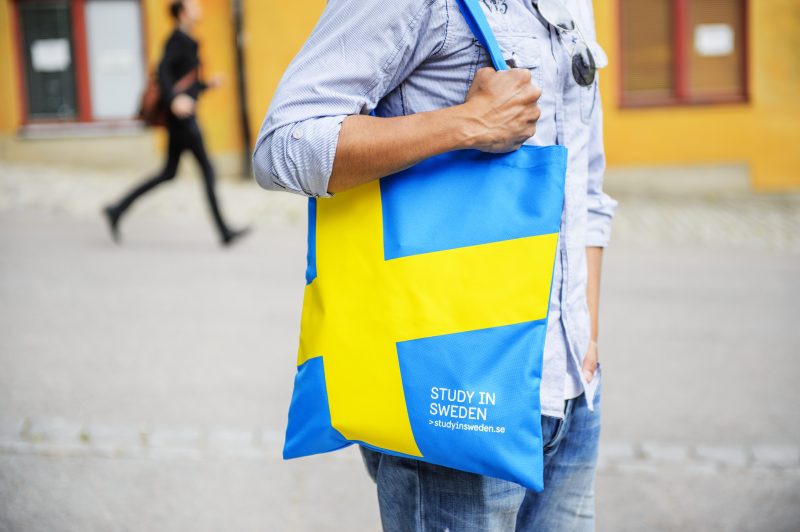
Accepted to the MBE program – what next?
The admissions results are finally out! If you got accepted to the MBE program, congratulations🎉 This is the start of an exciting journey. With your study place secured, it’s time to gear up for your move to Stockholm—especially if you’re coming from outside Sweden. In this post, I’ll highlight some important considerations to help you get prepared before the program begins.
1. Conditionally admitted? What does that really mean
A “conditional admission” means essentially that the study place has been offered with the condition that you 1. Pay your tuition fee and/or 2. That you still have to submit the necessary documentations, which usually is your degree if you are still in the final year of your Bachelor’s studies. However, the specific documentation is specified in the admission result, as well as the deadline to submit them. After these conditions are fulfilled, the admission status will change to “Admitted”. In the first admissions round, you do not need to separately accept the offered place, but if already know you do not wish to start the program remember to decline your offer before the start of the program!
2. Start searching for housing early!
As I’ve mentioned in my previous blogs, finding housing in Stockholm can be a real challenge, especially for international students. The process is even more difficult if you don’t have a Swedish personal number, which is often required by the city’s housing services. If you’re coming from outside the EU/Schengen area, don’t worry—you’re eligible to apply for KI residence, and you should, as it’s one of the easiest ways to secure accommodation. However, if you’re an EU/Schengen student, here’s the bad news: you’re not eligible for KI residence. But don’t stress! You can apply for student housing through Stockholm Student Housing (SSSB), where you can queue and collect points for up to 90 days. After this period, you’ll need to pause your queuing and join the Medicinska Föreningen student union to continue accumulating points. In most cases, you can secure a corridor room with your collected points, though some student flats may require a longer wait. Other housing site options are for example SBSS, Qasa, and Facebook housing groups. Here you can find great tips and important considerations when searching for housing in Sweden.
3. Do your research about Sweden
Sweden is a beautiful country, offering Nordic serenity, astonishing nature, and rich Scandinavian culture. While there are many stereotypes about Sweden—some of which may be true, but most are not—the best way to prepare yourself and avoid culture shock is to read about people’s personal experiences. The KI student blogs are a great resource for this, and Study in Sweden also offers valuable insights into what it’s like to study and live in Sweden. One important thing to highlight is that Sweden has a higher cost of living than many other European countries. It’s essential to plan your finances carefully and research the typical expenses for accommodation, food, transportation, and leisure activities. Yohannes’ blog provides an excellent breakdown of this, along with other things he wished he had known before moving to Sweden as an international student. Additionally, if you’re a student from outside the EU, be sure to check the processing times for your residence permit and apply well in advance.
By learning from the experiences of others, you can set realistic expectations and ensure a smoother transition into life in Sweden. Whether it’s understanding cultural norms, navigating the education system, or managing your budget, being well-prepared will help you make the most of your time here.
4. Unsure about the program?
Getting admitted to a program is an exciting achievement. But choosing to start can also feel overwhelming, and you may be filled with questions about whether the program feels right for you. Whether the program feels right for you is dependent on your goals and aspirations. Take some time to reflect on what you hope to gain from the program. Consider factors like the program syllabus, networking opportunities, and whether the program aligns with your career goals. Connecting with current students or alumni can also provide valuable insights into the experience. I highly recommend reading MBE alumni Fausta’s blog about this topic.
Once again, congratulations on your acceptance! I highly recommend attending any upcoming program webinars to get all the essential details and have any questions answered. Be sure to also check out our KI student Instagram page where various content will be posted about starting your studies at KI, including live sessions that provide even more insights. If you have any questions already in mind, feel free to email me. Best of luck, and I can’t wait to see you embark on this new adventure in the MBE program!🚀
Wendy - Bioentrepreneurship
Hej everyone, I'm Wendy from Finland! I'm currently studying in the Bioentrepreneurship master's program (MBE) at Karolinska Institutet. I was drawn to this program because of my interest in the business aspects of life sciences and the unique intersection between science and entrepreneurship. I'm excited to share my journey as an MBE student at KI with you! When I'm not studying, you can find me at the gym, baking, enjoying fika with friends or crocheting. I am also looking forward to exploring the beautiful city of Stockholm – especially discovering and trying out different brunch spots and cafés.

0 comments